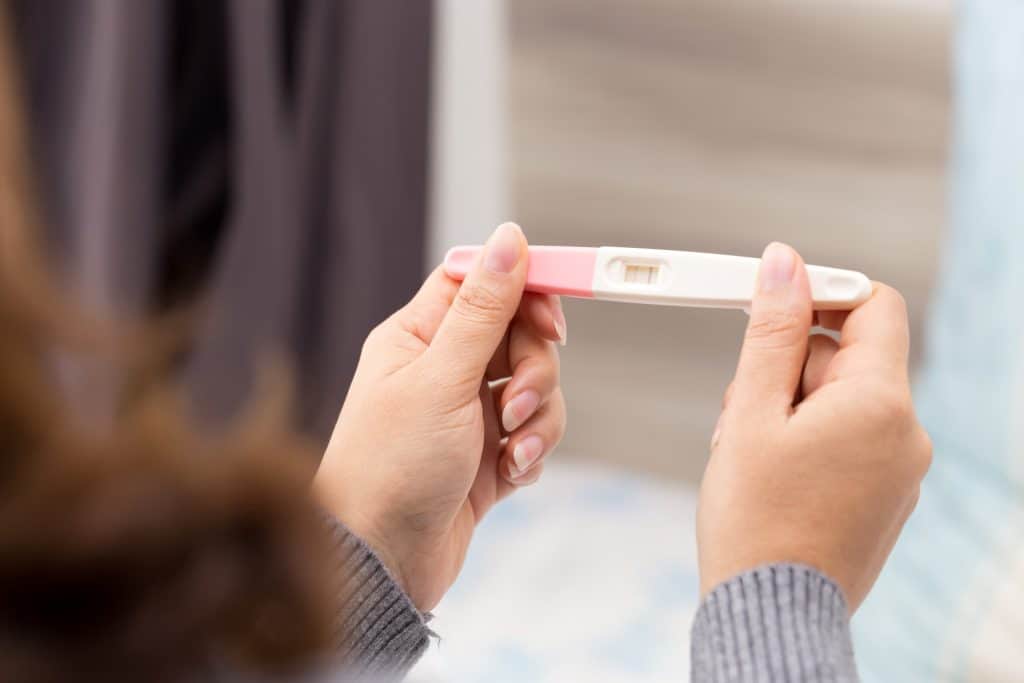Clomid is a medication that’s commonly used to treat infertility for women trying to conceive. It works by stimulating ovulation, which in turn bolsters the chance of pregnancy. But that said, can Clomid delay a positive pregnancy test?
A lot of information on that topic can be confusing, so we’d like to clarify a few details here:
Clomid stimulates the production and release of a hormone called gonadotropin, which triggers ovulation in women. It works by tricking your body into thinking it has less estrogen than it does, bolstering follicle-stimulating hormone (FSH) and luteinizing hormone (LH) production. Clomid can lead to false readings on ovulation predictor kits (OPKs).
Human chorionic gonadotropin (hCG) is the hormone pregnancy tests actually screen for. It’s usually given as treatment after Clomid to help prepare the uterus for pregnancy, but Clomid itself is completely hCG-free.
The impact of Clomid on pregnancy results is a common misconception. Clomid can cause false positives for OPKs, not pregnancy tests, which check for hCG levels.
The impact of Clomid on pregnancy results is overblown, but false pregnancy results are always crushing for hopeful mothers. While Clomid by itself won’t impact your pregnancy results, be mindful of other concurrent treatments that could!
Can Clomid Delay a Positive Pregnancy Test?
Ovulation Tests vs Pregnancy Tests
The impact of Clomid on pregnancy tests is nonexistent, but Clomid does skew ovulation tests. We’ll go over why they only influence one and not the other down below.
Ovulation predictor kits check for Luteinizing hormone (LH), which Clomid induces. OPK kits mistake the treatment-induced LH levels for the body’s natural levels of LH.
Pregnancy tests are sensitive to the hormone human chorionic gonadotropin (hCG). These kits equate elevated levels of this hormone with pregnancy. Recent injections of hCG often lead to false positives, but Clomid won’t alter pregnancy results (as the medicine is hCG-free).
Recent injections of hCG often lead to false positives, but Clomid won’t delay a positive pregnancy test result (as the medicine is hCG-free).
It’s also worth noting that while Clomid won’t impact pregnancy test results, hCG treatments can affect OPK results (as hCG treatments improve Luteinizing hormone production!).
When to Test for Ovulation after Taking Clomid?

Clomid affects pregnancy by stimulating estrogen and LH production in the body and can influence the hormones responsible for ovulation (LH and FSH) for a very long while.
When testing for ovulation, you usually want to wait for at least three days to ensure that the bulk of Clomid’s LH spike passes over. Most of the medicine should leave your body at around the one-week mark, but traces of it can still linger even past a month in certain cases.
In summary, give it at least three days to be safe, one week to be mostly sure, and a month to be dead certain. Giving yourself a week before checking is our practical recommendation here.
When to Test for Pregnancy After hCG Treatments?

While Clomid can’t delay positive pregnancy test results, follow-up treatments like hCG trigger shots will lead to elevated hCG levels in your blood. This can delay effective pregnancy screening with false positive readings for as long as two weeks after the procedure!
For this reason, most doctors recommend that you steer clear of pregnancy tests for at least that long to ensure that your results won’t be compromised – false positive pregnancy news is always difficult to bear.
Final Thoughts
Clomid can’t delay a positive pregnancy test, as these check for a different compoudn entirely! However, the treatments that follow Clomid, such as hCG injections, will give false readings when pregnancy tests are used while the hormone is still lingering in their system.
While Clomid won’t affect pregnancy test results directly, there might be other interactions at play affecting your attempts to conceive. Be sure to get medically-sound input by consulting your healthcare provider, and always defer to their professional judgments and recommendations.